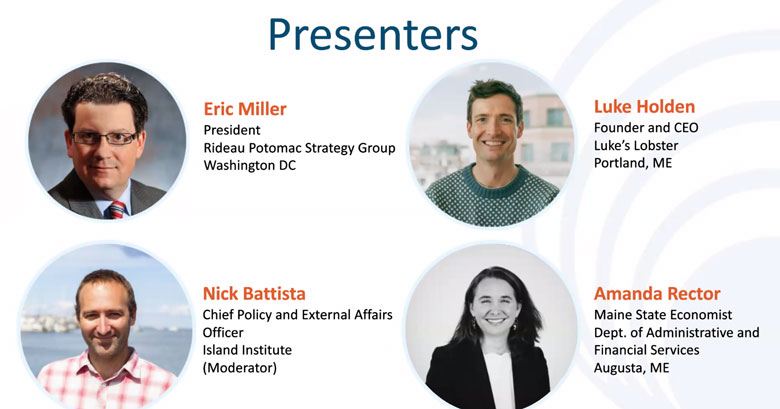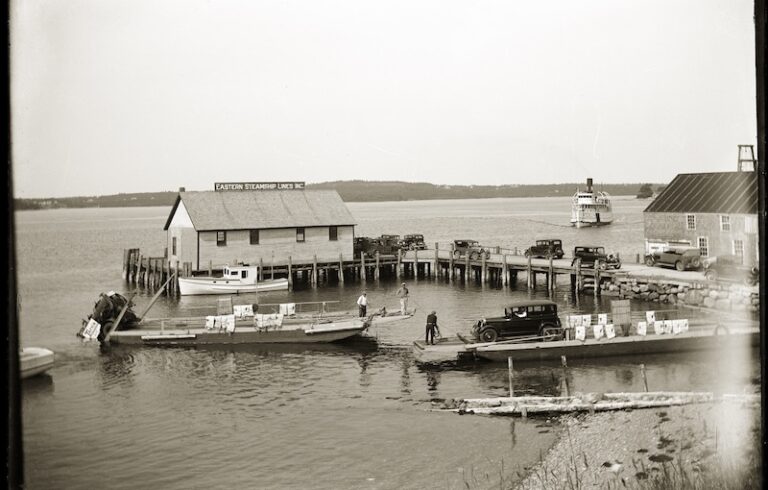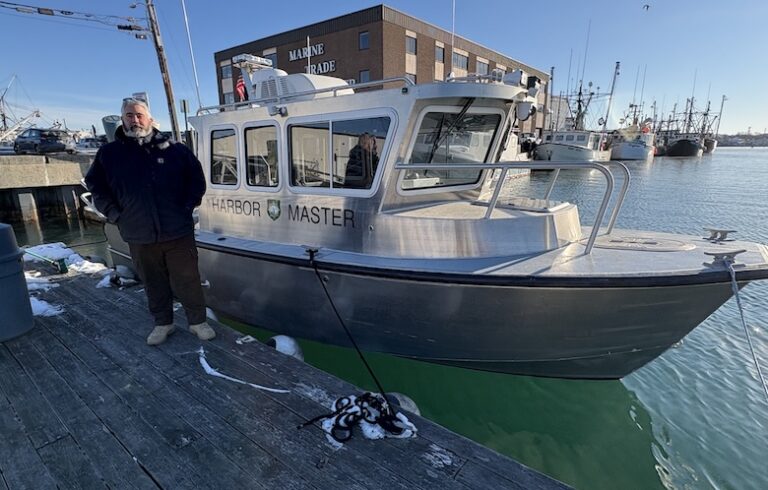The status of President Donald Trump’s tariff policies changes almost as fast as the spring weather. But a basic understanding of the impacts of those tariffs on Maine’s lobster fishery was offered at an Island Institute webinar on April 3.
Amanda Rector, Maine’s state economist, broke down international trade into an essential dynamic: “We have some stuff that you want, you have some stuff that we want.” A nation imports products from another country, she said, because “maybe you make some things better than we do.”
Most economists support robust international trade because it opens new markets for producers and brings in new products for consumers, Rector said.
“Free trade with our Canadian partners is critical.”
—Luke Holden
When the dollar is strong—valued higher than other national currencies—the U.S. imports more goods, she explained.
But trade is not static. Maine imports more than it exports, Rector continued.
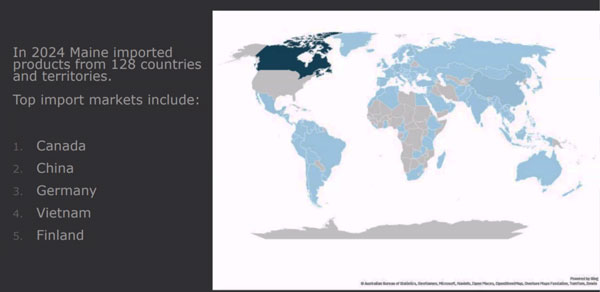
Maine has had a trade deficit for many years, though in 2010, it was smaller than it is today.
In 2024, Maine exported goods to 168 countries, with Canada the top export destination, by far, she said, with 40% of Maine exported goods arriving there. Canada also is the place where most of Maine’s imports—70%—originate.
Some 80% of Maine’s oil, natural gas, and gasoline come from Canada, and the state’s top export to the north is fish and marine products.
It’s a fluid process, Rector explained.
“We are exporting things, but we are importing, sometimes, the same things,” she said, with fish being a prominent example.
Another panelist, Eric Miller of the Washington D.C.-based Rideau Potomac Strategy Group, noted that the U.S. funded most of its government activities through tariffs for the nation’s first 120 years, ending with the adoption of the national income tax.
Trump, he said, has been a believer in tariffs since the 1980s.
“The central animating force of his life has been tariffs,” Miller said.
Luke Holden is the founder of the Luke’s Lobster chain of about 30 restaurants which operate around the U.S., and of an online retailer, and the business both imports and exports lobster. Luke’s operates a 60,000-square-foot processing facility in Saco.
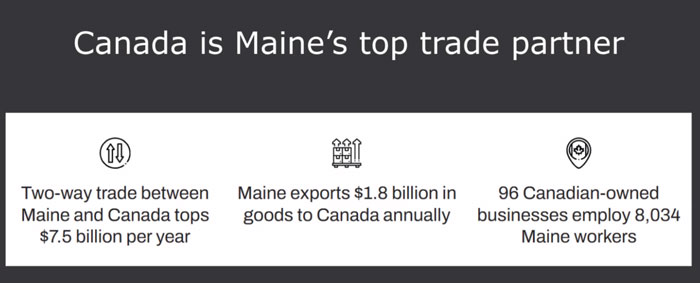
“We buy a lot of live lobster coming out of Canada,” he said, but from July to December, much of what the business buys comes from Maine. “I would guess that more than half gets processed up in Canada.”
“Free trade is critically important,” he asserted. “Free trade with our Canadian partners is critical.”
Holden acknowledged that Canadian lobster harvesters have competitive advantages, with the government there building and maintaining piers, and installing hoists and cold storage facilities.
But with lobster being “an indulgence, a luxury item,” he said the fishery shouldn’t add expenses. If tariffs raise the cost of importing fuel and paperboard, which are used in producing and shipping lobster, then that would increase the cost of the crustacean to consumers, or reduce the profit margin for companies like Luke’s, Holden said.
